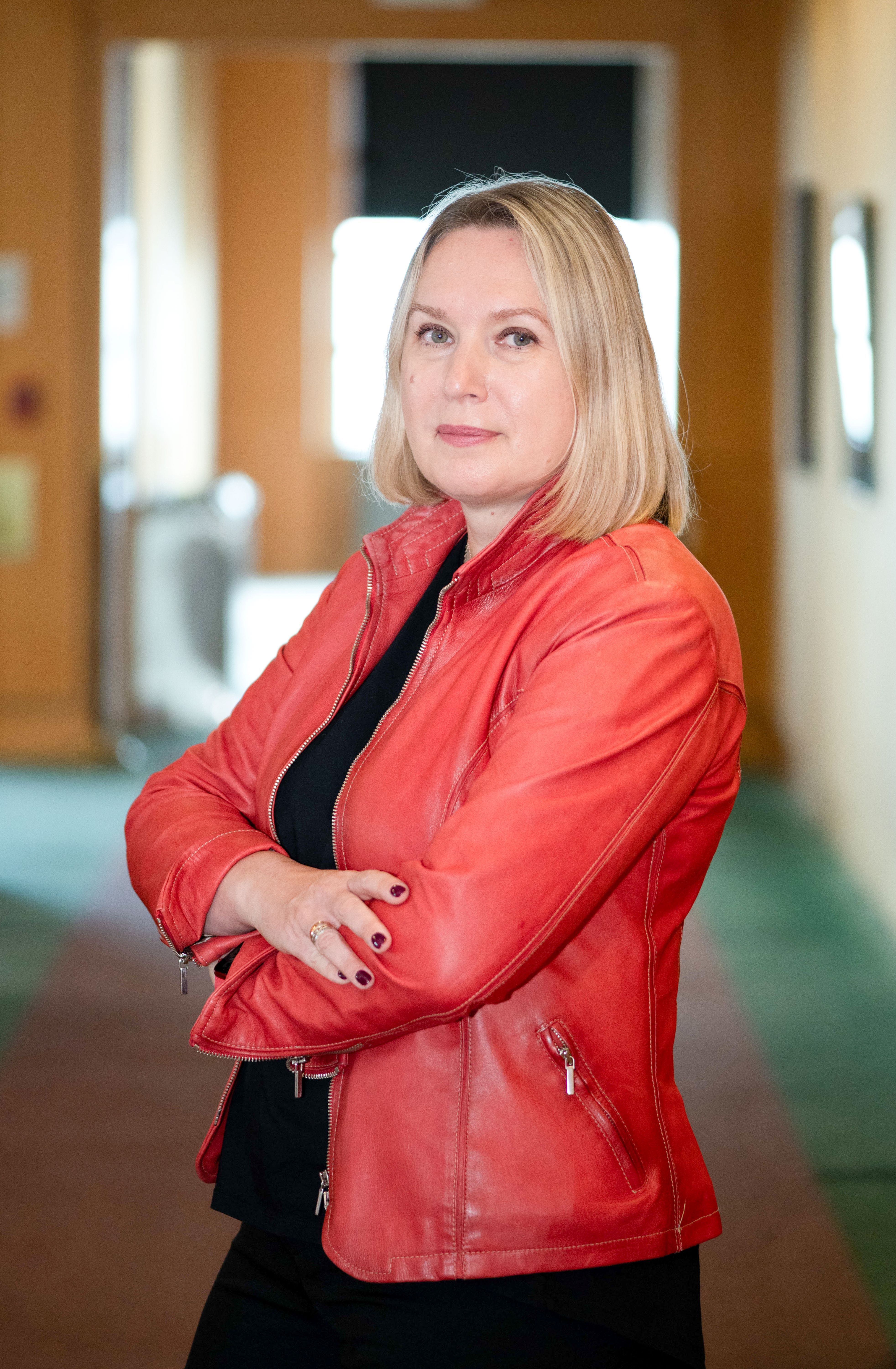Fellow: Polina E. Ilieva

Polina E. Ilieva, associate university librarian for collections and university archivist at the University of California San Francisco (UCSF), will be inducted as a Fellow of the Society of American Archivists (SAA) during an awards ceremony at the Annual Meeting of SAA in Chicago, IL. The distinction of Fellow is the highest honor bestowed on individuals by SAA and is awarded for outstanding contributions to the archives profession.
Ilieva, who is a Certified Archivist with over twenty–five years of archival experience, received her MA in international relations and the international equivalent of a doctoral degree in history at the Moscow State Institute of International Relations (MGIMO). She began her career as a research fellow for international research at MGIMO, and after immigrating to the United States, she accepted a position as a research associate at the Center for Southeast Asia Studies at the University of California, Berkeley. In 2000, she became an archival specialist at the Hoover Institution Archives at Stanford University, where her work focused on documenting the Russian diaspora and later arranging and processing materials of the Radio Free Europe/Radio Liberty collection. Six years later, Ilieva accepted a position with Truth Tobacco Industry Documents (TTID, formerly known as Legacy Tobacco Documents Library) at UCSF. Since then, she has demonstrated a keen ability to take on complex and increasing responsibility. In 2021, Ilieva was appointed the associate university librarian for collections and university archivist. Her work at UCSF has resulted in an impressive expansion of the archives program and the continued growth of the UCSF Industry Documents Library (IDL). Initially focused on the tobacco industry’s impact on public policy and the lives and health of generations of Americans, that digital library has since expanded and now contains archives of other industries which influence public health, including the opioid, chemical, food, drug, and fossil fuel industries.
Ilieva’s commitment to diversity and accessibility is readily apparent in her mentorship and teaching work. From 2018 to 2020, she initiated and led two internship taskforces at the UCSF Library to provide equitable and paid opportunities for student workers. The taskforces created guidelines and best practices for the program, advocating for and securing permanent funding. As she strives to increase the diversity of archival collections, Ilieva is committed to including the voices of everyone affected by healthcare and institutional inequities. She developed a robust exhibition program at UCSF and launched a public lecture series that has researchers discuss their experiences with the University’s collections. In 2019, Ilieva initiated an Artist in Residence program to promote health humanities by exposing and repurposing historical materials. The first project from the residency, "The City is a Body: System Vulnerabilities in the time of COVID-19,” was presented by artist Farah Hamade in 2020. The program will host five artists beginning in July 2024. A successful grant writer, Ilieva obtained a National Endowment for the Humanities grant to unite three San Francisco institutions—UCSF, San Francisco Public Library, and the GLBT Historical Society—to more fully document the biomedical, social, cultural, and economic legacy of the AIDS epidemic. Most recently, Ilieva initiated the UCSF Digital Health Humanities program with the goal of providing educational resources to encourage and develop researcher capabilities using data science and techniques to analyze “archives as data.” She also collaborated with the UCSF faculty to develop and teach the ”Anatomy of an Archive” course to build competency in archival science and understanding of historic records for graduate students.
Within SAA, Ilieva has had a profound impact. She served on numerous committees and sections, and she received an appointment to the Committee on Ethics and Professional Conduct in 2020, first as a member and then as co-chair. During that time, the committee reviewed and revised SAA’s Core Values Statement and Code of Ethics. Ilieva is also active in the Society of California Archivists and has made significant contributions to the Medical Heritage Library (MHL). During her tenure as president of Librarians, Archivists, and Museum Professionals in the History of Health Sciences (LAMPHSS), Ilieva convened two significant committees: one to develop guidelines for handling hazardous materials in collections, and the second to focus on the ethical management of historical human remains in archives, libraries, and museums dedicated to the history of health sciences.
Speaking about Ilieva’s approach to her work, one supporter noted that she has “a fundamentally humanistic outlook and empathy that has prompted her to take on some complex projects that many might have tried to avoid.” Another supporter remarked, “Polina was a supportive and encouraging mentor who taught me many valuable lessons in leadership. She helped me develop skills that have been invaluable in my professional development, and she illustrated to me the importance of building community within the field and participating in professional organizations and community outreach.”